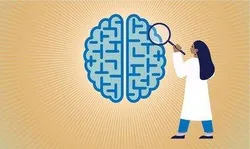
Post-Traumatic Stress Disorder (PTSD) in the Global Context 
Discover the global impact of PTSD and learn about its symptoms, prevalence, causes and treatment in this four-week course. Understand the risk and protective factors, explore diagnostic and help-seeking challenges, and critically appraise the role of culture in PTSD. Suitable for healthcare professionals, social workers, and anyone with an interest in mental health. Get a Certificate of Achievement to demonstrate your commitment to your career. ▼
ADVERTISEMENT
Course Feature
![]() Cost:
Cost:
Free
![]() Provider:
Provider:
Futurelearn
![]() Certificate:
Certificate:
Paid Certification
![]() Language:
Language:
English
![]() Start Date:
Start Date:
Self paced
Course Overview
❗The content presented here is sourced directly from Futurelearn platform. For comprehensive course details, including enrollment information, simply click on the 'Go to class' link on our website.
Updated in [June 30th, 2023]
This four-week course provides an overview of Post-Traumatic Stress Disorder (PTSD) in the global context. Learners will gain an understanding of the symptoms, prevalence, causes and treatment of PTSD. The course will explore the risk and protective factors associated with PTSD, as well as the diagnostic and help-seeking challenges. Treatment options for PTSD, including psychological therapies, will be discussed. The role of culture in PTSD will be critically appraised. This course is designed for individuals working in healthcare, including medical and allied health professionals, and social workers, as well as those with an interest in mental health. The Certificate of Achievement for this course may be useful for providing evidence of continuing professional development (CPD).
[Applications]
Upon completion of this course, learners may apply their knowledge to their own practice by understanding the prevalence of PTSD in the global context, recognising the effects of trauma on mental health, and being aware of the various treatment options available. Learners may also use the course to inform their own research, or to open up conversations about PTSD in their own communities.
[Career Paths]
[Job Position Path] Mental Health Professional
Mental Health Professionals are responsible for providing mental health services to individuals, families, and communities. They work with clients to assess, diagnose, and treat mental health issues, and provide support and guidance to help clients manage their mental health. Mental Health Professionals may work in a variety of settings, including hospitals, clinics, schools, and private practice.
The development trend of Mental Health Professionals is increasing due to the growing awareness of mental health issues and the need for more mental health services. Mental Health Professionals are in high demand, and the job outlook is expected to remain strong in the coming years. Mental Health Professionals are also increasingly being employed in a variety of settings, including community health centers, private practice, and online counseling services.
[Education Paths]
Educational Path:
The recommended educational path for learners interested in Post-Traumatic Stress Disorder (PTSD) in the Global Context is to pursue a degree in psychology, social work, or a related field. This degree will provide learners with the knowledge and skills necessary to understand and treat PTSD in a global context. The degree will also provide learners with the opportunity to gain an understanding of the cultural and social factors that can influence the development and treatment of PTSD.
The development trend for this degree is to focus on the intersection of psychology, social work, and global mental health. This degree will provide learners with the opportunity to gain an understanding of the global mental health landscape, and the ability to apply this knowledge to the treatment of PTSD. Additionally, the degree will focus on the development of skills in research, assessment, and intervention, as well as the ability to work with diverse populations.
Course Provider

Provider Futurelearn's Stats at AZClass
Discussion and Reviews
0.0 (Based on 0 reviews)
Explore Similar Online Courses

Affinity Designer : Vector Graphic for Absolute Beginners

Behavioral Neuroscience: Analyzing Anxiety and Depression

Python for Informatics: Exploring Information

Social Network Analysis

Introduction to Systematic Review and Meta-Analysis

The Analytics Edge

DCO042 - Python For Informatics

Causal Diagrams: Draw Your Assumptions Before Your Conclusions

Whole genome sequencing of bacterial genomes - tools and applications

Meditation

Mental Health First Aid Skills -


Start your review of Post-Traumatic Stress Disorder (PTSD) in the Global Context